Words by Mariah Lewis
A deaf man walks into the airport. The only physical thing that differentiates him from other travelers is that he won’t hear the engines roar to life. He tries to board his flight, but can’t hear the announcements either. Somewhere in the process, a staff member brings him a wheelchair. He has no use for a wheelchair. Embarrassed, he tries to communicate this to the airport staff but gets absolutely nowhere.
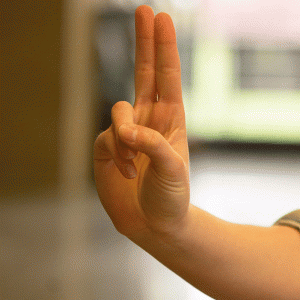
Click here for transcript.
“Hearing people don’t really know a lot about Deaf culture,” says Calla Clemenson, an American Sign Language (ASL) interpreter at Monroe Elementary School in Des Moines, Iowa. “They don’t really think about how to treat Deaf people.”
Example: Clemenson says it’s common for deaf people at restaurants to receive braille menus–something that would be helpful; but only to the blind. “That is so common in the Deaf culture to get a braille menu. Like really?” she says. “I don’t know if [hearing people] really understand.”
Both the airport scenario and the braille menus describe forms of audism. Gallaudet University, a university for the deaf and hard of hearing, defines the term “audism” as the idea that someone is superior because of his or her ability to hear. Think racism but against the Deaf.
“Audism is oppression from the hearing world to the Deaf,” says Abby Harvey, an ASL interpreter at East High School in Des Moines, Iowa. “[It’s] the misunderstanding of what deafness is.”
This term audism is relatively new in the grand scheme of etymology. It was coined in the late 1970s. Deaf (capital D) is different from deaf (lowercase d). In his book “Introduction to American Deaf Culture,” Thomas K. Holcomb explains the difference. “Deaf” with a capital “D” refers to an individual who embraces Deaf culture as a lifestyle whereas “deaf” simply denotes a physical inability to hear. Therefore, a deaf person may not be Deaf. Regardless of whether a person is Deaf, deaf, hard of hearing, or anything in between, audism remains.
The Practical Side of Audism
“My husband, who’s hearing, puts a microphone in front of me and we use it at a restaurant,” says Anne-Michelle Pedersen. Pedersen is a certified teacher of the Deaf and is hard of hearing herself. “When it’s a noisy restaurant and I can’t hear him, we put it on the table so I can hear him. A lot of times the waitress will say, ‘Oh is that a recorder?’ No, it’s just an FM system.” Frequency Modulation (FM) systems are devices some Deaf or hard of hearing people use to amplify sound like a hearing aid. “She thought we were recording the conversation in the restaurant,” Pederson continues. “Little things like that.”
While audism can be hurtful to a Deaf person, recognizing differences isn’t always offensive or negative. Leah Cone is a kindergarten teacher at Capitol View Elementary School in Des Moines. Cone is Deaf. She shared a moment that could’ve been fraught with audism that she turned into a humorous situation.
“Some people would say, ‘Oh, why do you talk funny?’ [and] I would make it a joke,” Cone says. “Like in high school, one boy asked me what country I was from. I said I’m from here. I was born in Des Moines. [But he continued asking] what country I was from. I finally caught on to what he was trying to say. I said I was from Sweden. He believed me for a week.”
Unfortunately, recognizing differences between schoolchildren often results in bullying instead of humor.
“My daughter Michaela is 15,” Tara Aunspoch says. Michaela is Deaf. “I shelter her because I don’t want her to get hurt. She is very social. Bullying is her big…” she paused. “That’s what she deals with…” another pause. “Since fourth grade…” at that point, Aunspoch began crying. “Sorry,” she whispers in a barely audible tone.
When a Family Dinner Goes Wrong
While audism often occurs in public places, sometimes the worst offense can be right at home.
Imagine a boisterous laughing family gathered around a dinner table. A heaping bowl of mashed potatoes is making its way around. Down at the far end, a father and his daughter let out a particularly loud guffaw. However, in the corner sits a young girl quietly staring down at her plate. No one talks to her. She tries to understand the joke between her father and sister. She asks another sister about it. Her sister replies with the infamous, “I’ll tell you later,” but later never comes.
Susan Rolinger’s daughter Madeline was born Deaf. Madeline uses a cochlear implant (CI). A CI is a hearing device attached via surgery. It helps create a sense of sound for the deaf person. Madeline also communicates by speaking. Susan says that Madeline still has trouble catching everything.
“One of them [Madeline’s sisters] laughs and Madeline says, ‘What?’” Rolinger says. “After a while, sisters get sick and tired of repeating. [It’s] just completely devaluing her being able to experience what just happened in the family. As much as we try to be inclusive and provide access, it happens even at home.”
“I don’t communicate with my family,” says Sydney, a deaf teenager. “I’m always just quiet. My family doesn’t understand Deaf culture, which is a struggle just to communicate. I’d rather just be alone and be on my own.”
“My family doesn’t sign except for my sister and my mom,” says Bob Greif, a deaf teacher’s assistant for Des Moines Public Schools. “So yeah, I’m used to it.”
What can hearing people do to help stop audism?
“I’d like them to learn to sign, really,” Greif says. And while that’s the best and easiest way to stop audism, it’s not an easy goal to achieve. In the meantime, Harvey suggests you take time to learn about the Deaf community.
“We need to be aware of how we’re treating people with hearing loss,” Harvey says. “People are different and may react differently…[audism] is a very hurtful thing. It just needs to be put out there.”




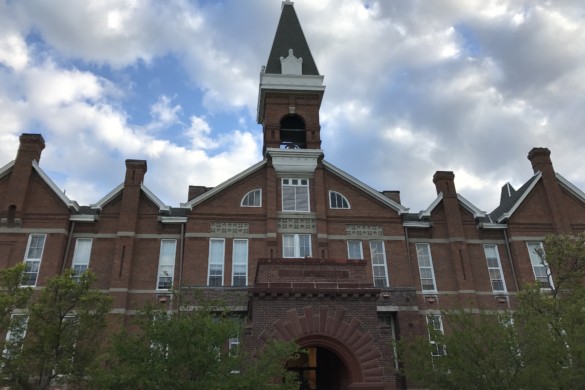
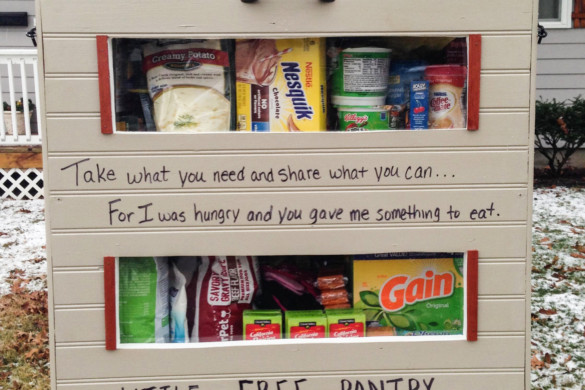
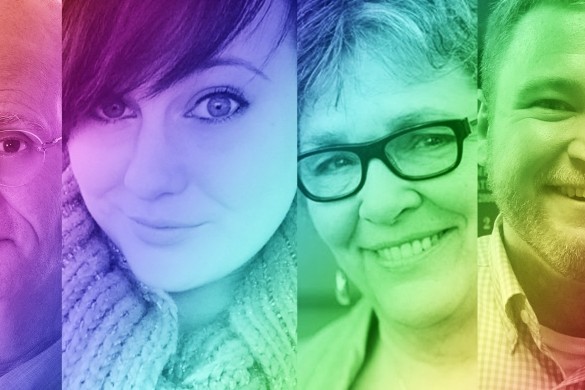

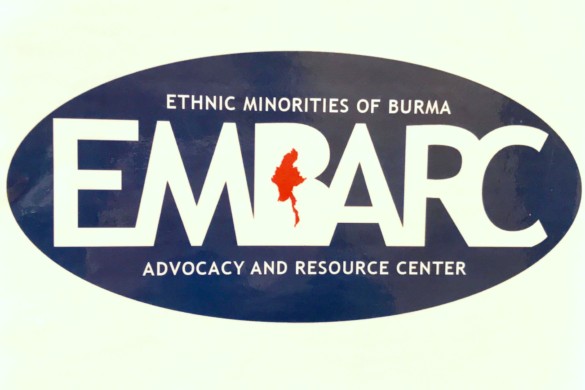

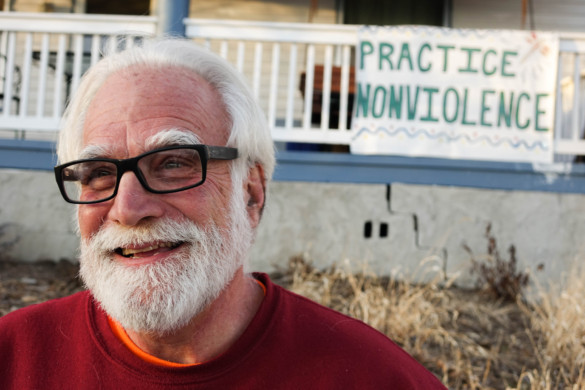
1 Comment
Very impressed that you guys decided to do a story on this. In the future, a compelling (and more in-depth story would/could include a non-(D)eaf point of view… As someone who is a Drake grad, profoundly deaf and not a part of the Deaf community, I have to say there are a lot of opinions out there about audism and this is only one side of the story. I know school is out soon so this probably won’t be seen but if you’re ever interested, it is something I think should be written about… Just with the more than just the Deaf perspective. Proud of UP this year though!